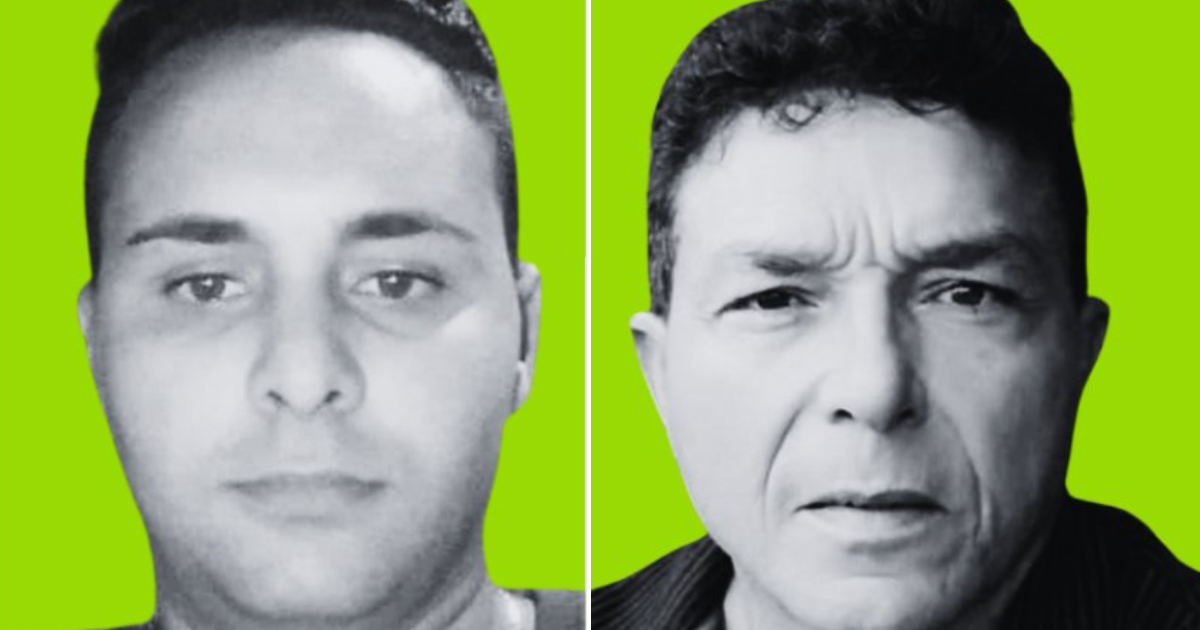
Related videos:
The Cuban regime released the political prisoners from July 11, 2021, Luis Frómeta Compte and Iván Arocha Quiala, as part of the process of "early release benefits" announced in January by the island's judicial authorities.
Luis Frómeta Compte, a Cuban-German citizen, was arrested in the context of the protests on July 12, 2021, in La Güinera, Havana, for filming and broadcasting the demonstration. Initially, the prosecution requested a sentence of 24 years in prison for the crime of "sedition"; he was sentenced to 25 years, which was later reduced to 15 after an appeal.
His health had severely deteriorated in prison, prompting calls from his daughter and international organizations for his release and transfer to Germany. In February, it was reported that he was suffering from a severe hypertensive crisis with a concerning medical condition.
His family confirmed the news of his release, asking for privacy and expressing gratitude for the support received.
His release occurred within the framework of the recent releases of political prisoners.
Iván Arocha Quiala was arrested in El Caney, Santiago de Cuba, during the protests on July 11, 2021. He was charged with several offenses, including "spreading epidemics," "public disorder," "incitement to commit a crime," "contempt," "assault," and "resistance." The prosecutor requested a 7-year prison sentence, but he was sentenced to 10 years, and his appeal was not successful.
He is one of the six members of the Arocha Quiala family who were arrested during the protests on July 11. His father, Iván Mauricio Arocha, was released on February 27, following the resumption of the release process. The family reported that the six had been sent to different prisons as a strategy to weaken them emotionally. Until a few months ago, several of them were still in prison.
In recent days, at least 15 people detained for political reasons have been released. Cuban authorities have made it clear that this is not an amnesty or a pardon, but rather a "benefit of early release" that imposes conditions on those released, such as the obligation to demonstrate "good behavior" under the threat of being re-incarcerated.
The recent releases come after more than a month of pause in the process, which was interrupted at the end of January. The regime had promised the release of 553 prisoners as part of an agreement with the Vatican; until the halt of the process, only around 150 had been released.
Various human rights organizations have reported that the Cuban regime has inflated the figures of releases by mixing political prisoners with common inmates, and that most of those released had already been eligible for parole for months or for an open regime. Furthermore, activists have reported that the government still keeps hundreds of prisoners of conscience in Cuban jails and that those released continue to be subjected to monitoring and restrictions.
Meanwhile, the regime continues to warn that those who do not comply with the imposed conditions could be returned to prison at any time.
Frequently asked questions about the release of protesters from July 11 in Cuba
Why were Luis Frómeta and Iván Arocha Quiala released?
Luis Frómeta Compte and Iván Arocha Quiala were released as part of a process of "early release benefits" announced by the Cuban regime. These releases are not amnesties or pardons, but instead impose conditions on the released individuals, who must demonstrate "good behavior" to avoid being re-incarcerated.
What was the reason for the arrest of Luis Frómeta during the protests on July 11th?
Luis Frómeta was arrested for recording and broadcasting the protests on July 11 in La Güinera, Havana. He was initially sentenced to 25 years in prison for "sedition," a sentence that was later reduced to 15 years following an appellate court appeal.
What conditions do the ex-prisoners from July 11 face in Cuba?
The released prisoners from 11J in Cuba must adhere to conditions set by the regime, such as demonstrating "good behavior." If they fail to meet these conditions, they risk being sent back to prison. Furthermore, they remain under surveillance and restrictions.
How has Luis Frómeta's health been affected by his time in prison?
During his time in prison, Luis Frómeta's health deteriorated significantly, suffering from a severe hypertensive crisis. The lack of adequate medical attention and the prison conditions worsened his condition, leading to international calls for his release and medical treatment in Germany.
What is the current state of the political prisoners from July 11th in Cuba?
Despite the recent releases, hundreds of 11J protesters remain incarcerated in Cuba, facing inhumane conditions and violations of their rights. Various organizations report that the release figures have been inflated by including common prisoners and that many of those released were already eligible for parole.
Filed under: